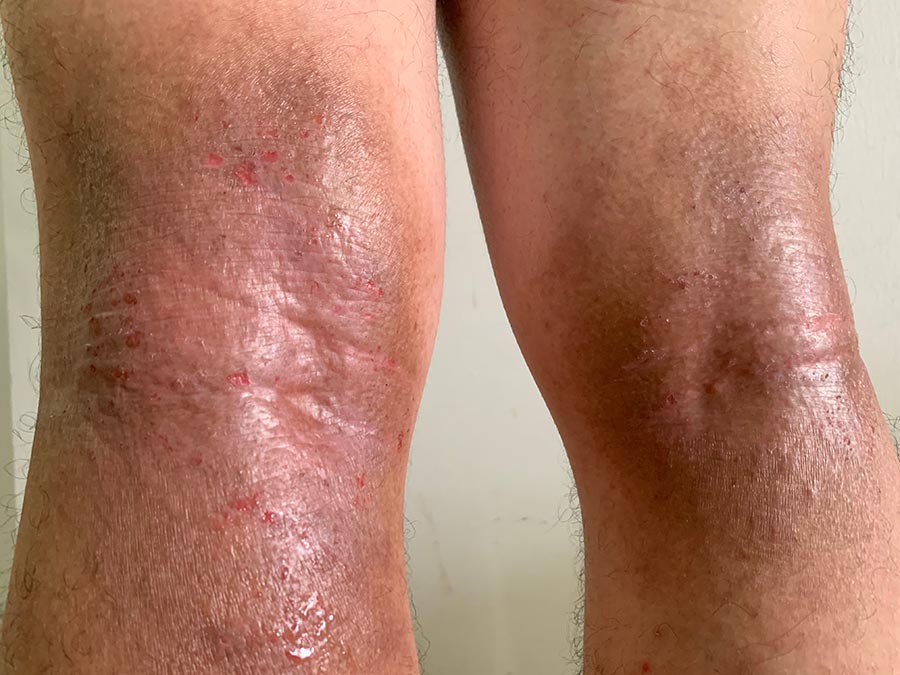Atopic dermatitis is a common, chronic skin condition that can cause flare-ups of red, itchy patches on the skin. While there is no cure for atopic dermatitis, managing flare-ups with proper and timely treatment can help reduce symptoms and improve quality of life.
This comprehensive guide to dealing with flares provides an overview of the causes and triggers of atopic dermatitis as well as effective treatments to minimize their impact. It also offers strategies for reducing stress levels and maintaining healthy habits in order to better cope with this condition.
With this guide, you will be able to take control over your symptoms and live happier lives despite having atopic dermatitis.
Understanding Atopic Dermatitis

Atopic Dermatitis (AD) is a chronic skin condition that can be distressing and have an impact on the quality of life. Its important to understand and recognize the different signs and symptoms of AD, as well as how it may develop over time.
With proper management, many people with AD are able to manage their flares more effectively. The most common symptom of AD is dry, itchy skin due to inflammation in the outer layer of skin called the epidermis.
This inflammation can cause redness, swelling, scaling or thickening of the skin. Other possible symptoms include rashes on certain parts of your body such as face, neck and hands; small bumps that may ooze fluid when scratched; rough patches; dark circles around eyes; sleep disturbances due to itching sensation at night.
In some cases, severe forms of AD might lead to open sores which increases risk for bacterial infection if left untreated. The severity of this condition varies from person-to-person depending on age group or other underlying medical conditions like asthma or hay fever which are also known as allergic rhinitis.
It is important for those affected by Atopic Dermatitis to identify triggers so they can avoid them in order to reduce flare ups such as environmental allergens like dust mites or pet dander or exposure too harsh detergents/cleansers/soaps etc., stress levels, changes in temperature including humidity levels etc.
, hormonal fluctuations during menstrual cycles etc.. Keeping a diary will help individuals keep track any potential triggers along with identifying patterns which could prove useful while trying different treatments options available for managing Atopic Dermatitis flares more effectively .
Treating and Preventing Symptoms During a Flare

When it comes to treating and preventing symptoms during an atopic dermatitis flare, there are several steps you can take. First and foremost, try to identify the triggers that may have caused your flare-up in the first place.
These could include environmental factors such as allergens or irritants (such as harsh chemicals or detergents), stress, diet changes, skin infections, or even hormonal fluctuations. Once you’ve identified potential triggers, avoid them if possible to help prevent future flares.
Next is managing the itching associated with a flare-up – this is often one of the most distressing symptoms for patients dealing with atopic dermatitis. To reduce itchiness while avoiding further irritation of the skin, be sure to use mild cleansers instead of soap when washing; apply moisturizers frequently throughout the day; soak in lukewarm baths; wear loose clothing made from natural fabrics (like cotton); and keep fingernails short so that scratching does not cause more damage to already sensitive skin.
In addition to lifestyle modifications like these, topical medications including corticosteroids may be prescribed by your doctor depending on severity of your condition. Finally make sure you get adequate rest and nutrition – both play an important role in aiding recovery from a flare-up and helping manage long term symptoms associated with atopic dermatitis.
Eating a balanced diet full of whole grains, fruits & vegetables will provide vital nutrients needed for good health while also reducing inflammation related to eczema outbreaks – plus getting plenty of sleep helps support immunity which can help ward off infection!
Don’t Let Eczema Get You Down!

Atopic dermatitis, commonly known as eczema, is a skin condition that affects millions of people around the world. This comprehensive guide has provided helpful tips and advice on how to manage flares related to atopic dermatitis.
From improving ones diet and lifestyle habits to treating flare-ups with over-the-counter or prescription medicines such as topical corticosteroids or an eczema cream, there are numerous ways in which individuals can reduce the severity of their symptoms. With proper management strategies in place, those affected by atopic dermatitis can achieve healthier skin and better quality of life.






